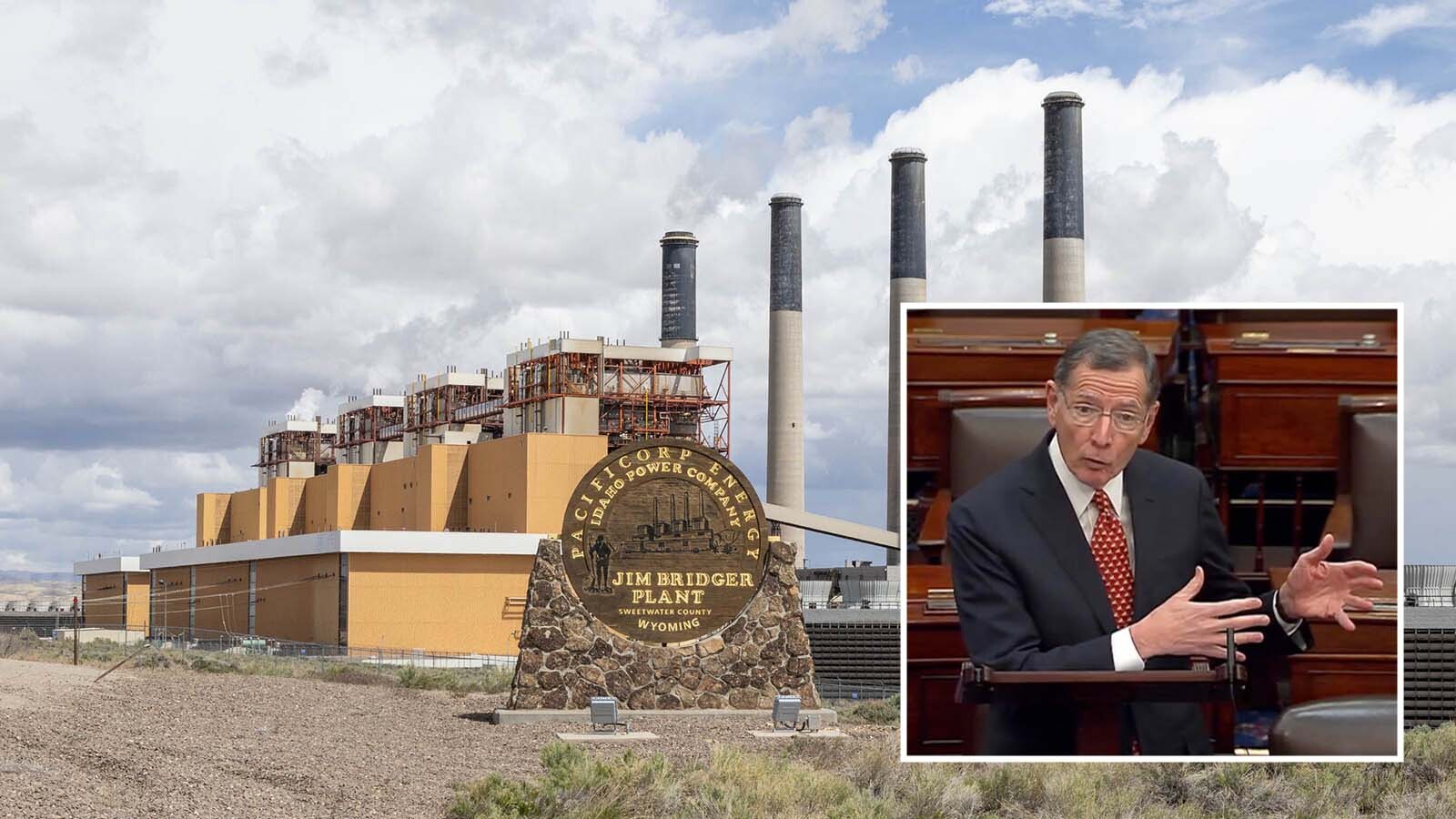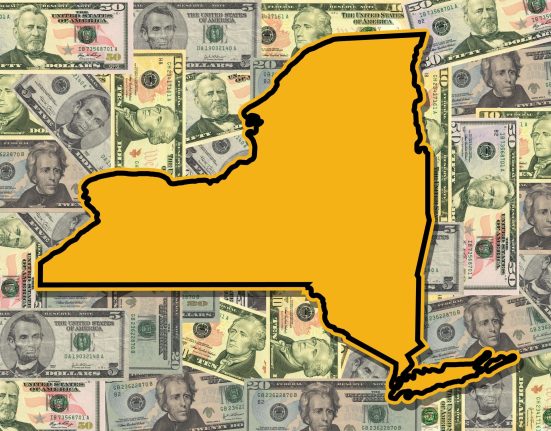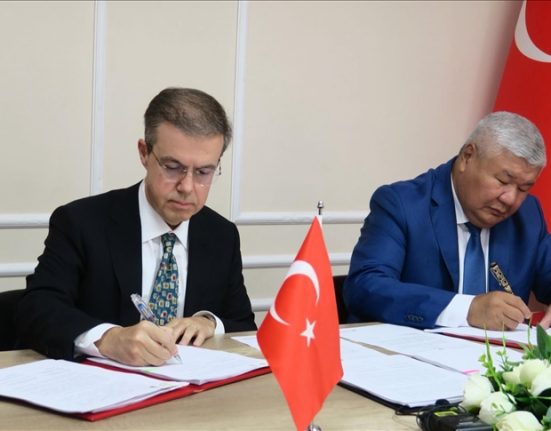WASHINGTON, D.C. — U.S. Sen. John Barrasso recently re-introduced legislation aimed at forcing the World Bank to roll back what the senator characterizes as anti-fossil fuel policies in its quest to bring electricity to millions of people without power across the developing world.
The “Combating Global Poverty Through Energy Development Act” would require the World Bank to eliminate prohibitions on financing coal, oil, natural gas, and civil nuclear energy projects — or face a 50% reduction in U.S. funding.
Barrasso initially introduced this legislation in March 2021 in direct response to an executive order by President Joe Biden that promoted energy financing aligned with the goals of the 2015 Paris Agreement.
“It also directed development of a plan to end international financing of carbon-intensive fossil fuel-based energy,” Barrasso Spokesperson Laura Mengelkamp told Cowboy State Daily Monday.
“Roughly 737 million people worldwide are living without access to electricity,” added Mengelkamp. “Energy is a critically important tool to help countries alleviate poverty as well as improve the education, health, and wellbeing of their citizens.
“The World Bank has not financed any new coal-fired plants since 2010, upstream oil and gas projects since 2019, or oil pipelines since 2014.”
Last month, U.S. Treasury Secretary Scott Bessent said that the U.S will push for the World Bank to focus on increasing energy access around the world, said Mengelkamp, adding that the World Bank’s president has expressed a desire to talk about an “all of the above” strategy on energy.
Senator Barrasso’s legislation, according to his office, aligns with Secretary Bessent’s goals and aims to push international financial institutions, like the World Bank, to support a wider range of energy projects.
“This includes coal, oil, natural gas, and nuclear, rather than restricting financing to renewable energy alone,” said Mengelkamp. “It also helps ensure Wyoming taxpayer dollars are only going to the World Bank if they stop discriminating against traditional sources of energy.”
“If passed, this legislation would open the door for all companies, including those based in Wyoming, to be considered by the World Bank for future international and traditional energy projects,” added Mengelkamp.
World Bank 101
On its website, the World Bank describes its mission as, “To create a world free of poverty — on a livable planet.”
The Bank goes on to describe itself as a “giant cooperative, with its members as shareholders.”
“The number of shares a country has is based roughly on the size of its economy,” according to the World Bank, which is based in Washington D.C. “The United States is the largest single shareholder, followed by Japan, Germany, the United Kingdom, and France. The rest of the shares are divided among the other member countries.”
Based on financial details provided in a January 2025 report from the Congressional Research Service, recent annual contributions from the U.S. Treasury appear to be approximately $1.6 billion per year.
The Bretton Woods Project, a World Bank watchdog group, reported that between 2023 and 2024, the World Bank committed approximately $19 billion to energy sector lending.
Of this, direct investment in renewable energy projects accounted for $2.34 billion, or 12.3% of the total energy financing.
In its 2024 “Climate-Related Financial Disclosures,” the World Bank disclosed that it, “Is one of the largest multilateral financing providers for renewable energy and energy efficiency projects in developing countries.”
“Renewable energy support is always our first choice as we work to provide access to electricity to the nearly 700 million people who still cannot power their homes, schools, hospitals, and businesses,” continued the report. “During this transition, we continue to selectively support natural gas as a transition fuel if the investment is in line with the country’s long-term decarbonization pathway.”
‘Force The Hand’
In a Friday press release, Barrasso stated his legislation would chart a new pathway, one that includes nuclear and fossil fuels.
“Every U.S. dollar at the World Bank should make a difference for people in the developing world,” Barrasso said. “Developing countries desperately need affordable and reliable energy.
“Instead of promoting valuable energy projects, the World Bank continues to boycott coal power generation, oil and gas production and nuclear energy projects. This bill will force the hand of the World Bank and any financial institutions that choose to play politics with the lives of those dependent on these critical energy projects.”
Sen. Cynthia Lummis signed on as a co-sponsor and in a statement to Cowboy State Daily on Monday, Lummis echoed Barrasso’s call for a broader spectrum of energy development.
“Instead of supporting critical power generation, certain institutions, like the World Bank, continue boycotting coal, oil, gas, and nuclear energy projects,” Lummis said. “I believe that our citizens shouldn’t see their tax dollars funding organizations that reject practical energy solutions for ideological reasons.
“Millions of folks around the globe are in desperate need of affordable, reliable, baseload energy. Our decisions shouldn’t be guided by failed anti-energy strategies from the Biden administration.”
Fine Print
According to the bill text, the secretary of the Treasury would be directed to instruct U.S. executive directors at international financial institutions to “oppose any rule, regulation, policy, or guideline that would restrict, prohibit, or have the effect of restricting or prohibiting, the financing of coal, oil, natural gas, or civil nuclear energy projects.”
The legislation specifically targets the International Bank for Reconstruction and Development — one of the financial institutions that collectively make up the World Bank — mandating that the Treasury secretary instruct the U.S. executive director to “immediately and vigorously pursue policy changes at the Bank” that would result in the reversal of restrictions on financing coal power generation, oil and gas exploration and production, and civil nuclear energy projects.
A key provision of the bill would cut U.S. funding to the World Bank by 50% starting in fiscal year 2026 until the Treasury Secretary certifies to congressional committees that the bank has rescinded rules prohibiting financing of fossil fuel and nuclear energy projects and has “in effect a policy promoting the financing of coal, oil, natural gas, and civil nuclear energy projects.”
This hardline approach comes as the World Bank is pursuing an ambitious initiative called “Mission 300,” which aims to connect 300 million people to electricity in Sub-Saharan Africa by 2030.
According to World Bank documents, the initiative is a partnership with the African Development Bank that brings together African governments, the private sector, and development partners to expand electricity access.
The World Bank has pledged to connect 250 million people to electricity under this initiative, with the African Development Bank connecting an additional 50 million. The program plans to leverage $30 billion in International Development Association resources between now and 2030.
In January 2025, the Mission 300 Africa Energy Summit in Tanzania marked what the World Bank called “a historic milestone” with African government leaders endorsing the Dar es Salaam Energy Declaration.
The declaration prioritizes renewable energy sources like solar and hydropower.
Twelve countries have already unveiled detailed “National Energy Compacts” to scale up electricity access, with the World Bank reporting it has connected more than 21 million people across Africa between July 2023 and February 2025.
While the World Bank has stated that “renewable energy can help countries mitigate climate change, build resilience to volatile prices, and lower energy costs,” emphasizing that “solar and wind technologies are game changers,” Barrasso’s legislation characterizes these positions as potentially harmful to developing nations.
Critics And Supporters
The World Bank’s approach has drawn criticism from both sides. Environmental groups argue the bank continues to fund too many fossil fuel projects, while Barrasso and his colleagues contend it doesn’t fund enough.
A coalition of environmental organizations called Big Shift Global criticized the World Bank in April 2024, citing research that showed the World Bank Group “provided the most direct finance for fossil fuels of any multilateral development bank at $1.2 billion a year on average between 2020 and 2022.”
Meanwhile, Barrasso’s bill is supported by some domestic energy stakeholders, like the Colorado River Energy Distributors Association (CREDA).
“The scope of the bill is much broader than CREDA’s Colorado River Storage Project focus, but I can safely say that all CREDA members rely on and own a multitude of domestic energy resources and understand the importance of diverse resource types to ensure grid reliability and energy affordability for the over 4 million customers they serve,” Leslie James, executive director of CREDA, told Cowboy State Daily on Monday.
“Many of these customers are in some of the most impoverished areas of this country,” added James. “This bill appears to support those principles and looks like a common sense and necessary piece of legislation.”
The bill’s background section notes that on Jan. 27, 2021, the Biden administration signed an executive order requiring the Secretary of Treasury to develop a strategy to use America’s voice and vote in international financial institutions to promote financing aligned with the goals of the Paris Agreement, while directing “the development of a plan to end international financing of carbon-intensive fossil fuel-based energy.”
Barrasso said this approach “by its very nature, will hurt the poorest of the poor” in developing nations that need reliable energy sources.
The bill was referred to the Committee on Foreign Relations after being introduced by Barrasso, along with co-sponsors Sens. Lummis, Ted Cruz, R-Texas, Pete Ricketts, R-Neb., Marsha Blackburn, R-Tenn., Mike Lee, R-Utah and Bill Hagerty, R-Tenn.
David Madison can be reached at david@cowboystatedaily.com.







